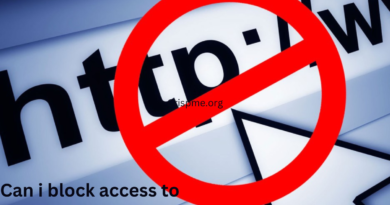PepsiCo: Redefining Quality in the World of Beverages
Introduction
With a history spanning more than a century, PepsiCo, Inc. is a titan in the global food and beverage sector. Caleb Bradham, a pharmacist from North Carolina, founded Pepsi-Cola in 1898 and set the stage for what would eventually become an international sensation. PepsiCo’s history has been shaped by mergers, strategic turning points, and an unwavering commitment to sustainability and innovation.
Strategic Expansion and Historical Development
An major turning point in the history of the company was the breakthrough merger that took place in 1965 between it and Frito-Lay, Inc. This merger opened up new markets for PepsiCo’s product line and paved the way for the company to diversify its offerings. In addition to broadening its product offering, this strategic move helped the company further solidify its position as the market leader in the snack and beverage business industry.
Worldwide Reach and Industry Impact
PepsiCo is able to truly connect with people all around the world because it has operations in more than 200 countries. It is organized from its headquarters in Purchase, New York, where the firm manages a global network that reaches customers all over the world. Key markets and revenue growth are two indicators that reflect it’s financial strength and strategic skill, which are headed by professionals such as Ramon Laguarta.
Dedicated to Public Health and Sustainability
Despite its successes, it is under scrutiny for packaging issues and palm oil deforestation. In response, the company has prioritized sustainability and vowed to reach net-zero greenhouse gas emissions by 2040. Pesticide reduction and packaging sustainability are proactive environmental stewardship measures. It has also prioritized healthier products due to public health concerns. Strategic acquisitions like Bare Foods and SodaStream show the company’s commitment to nutrient-dense products without sacrificing taste or quality.
Impact of Competition on Industry
Coke and Pepsi have been engaged in a fierce competition that has had a significant impact on the beverage industry. These rivalries are frequently referred to as the “cola wars.” As a result of growing rivalry, product diversity and innovation have increased. These businesses have expanded their offerings beyond traditional cola beverages to include a wide variety of snacks and beverages that cater to the preferences of consumers all over the world.
Forward-Looking: A Tradition of Excellence
The heritage of PepsiCo is more than simply its line of refreshing drinks—it is a story of flexibility, resiliency, and unwavering dedication to making a positive global impact. The company’s commitment to innovation, sustainability, and consumer health continues to be at the forefront as it navigates opportunities and challenges in the changing marketplace. It is well-positioned to redefine excellence in the years to come because of its forward-thinking philosophy, which welcomes change and forecasts trends.
Conclusion
PepsiCo’s rise from a little soda recipe to a worldwide behemoth is evidence of its flexibility, inventiveness, and ability to take the lead in the cutthroat food and beverage sector. PepsiCo has a long history of strategic mergers, international growth, and a dedication to sustainability and public health. As such, it will continue to influence what and how we consume in the future. As the business develops, its emphasis on consumer-centric innovation, healthy product offerings, and environmental responsibility will surely strengthen its standing as a market leader.
FAQs
What is PepsiCo’s background?
Caleb Bradham created it in 1898 after creating Pepsi-Cola. Following its 1965 merger with Frito-Lay, Inc., the firm underwent substantial expansion, hence initiating its foray into the snack sector and promoting additional diversification.
Where is the headquarters of PepsiCo?
America’s Purchase, New York is home to it’s corporate headquarters.
How many nations does PepsiCo do business in?
With operations in more than 200 nations, PepsiCo provides a wide variety of beverages and snacks to cater to a wide range of customer markets.
What environmental projects does PepsiCo have underway?
By 2040, PepsiCo wants to have zero net emissions of greenhouse gases. Additionally, the corporation is committed to lowering the use of pesticides, enhancing the sustainability of packaging, and encouraging ethical sourcing methods, especially with regard to palm oil.
How is PepsiCo handling issues related to public health?
It has made acquisitions of businesses like Bare Foods and SodaStream as part of their strategy to provide healthier product options. These initiatives satisfy consumer demand for nutrient-dense substitutes without sacrificing flavor or quality.
What role does PepsiCo’s rivalry with Coca-Cola play?
The “cola wars,” a rivalry between PepsiCo and Coca-Cola, have spurred product variety and innovation in the beverage sector. Global market trends and consumer preferences are still being shaped by this competition.
What is the future strategy of PepsiCo?
PepsiCo wants to stay at the forefront of innovation, sustainable business practices, and customer health. In order to uphold its tradition of excellence, the company is dedicated to adapting to shifting consumer tastes and worldwide challenges.




